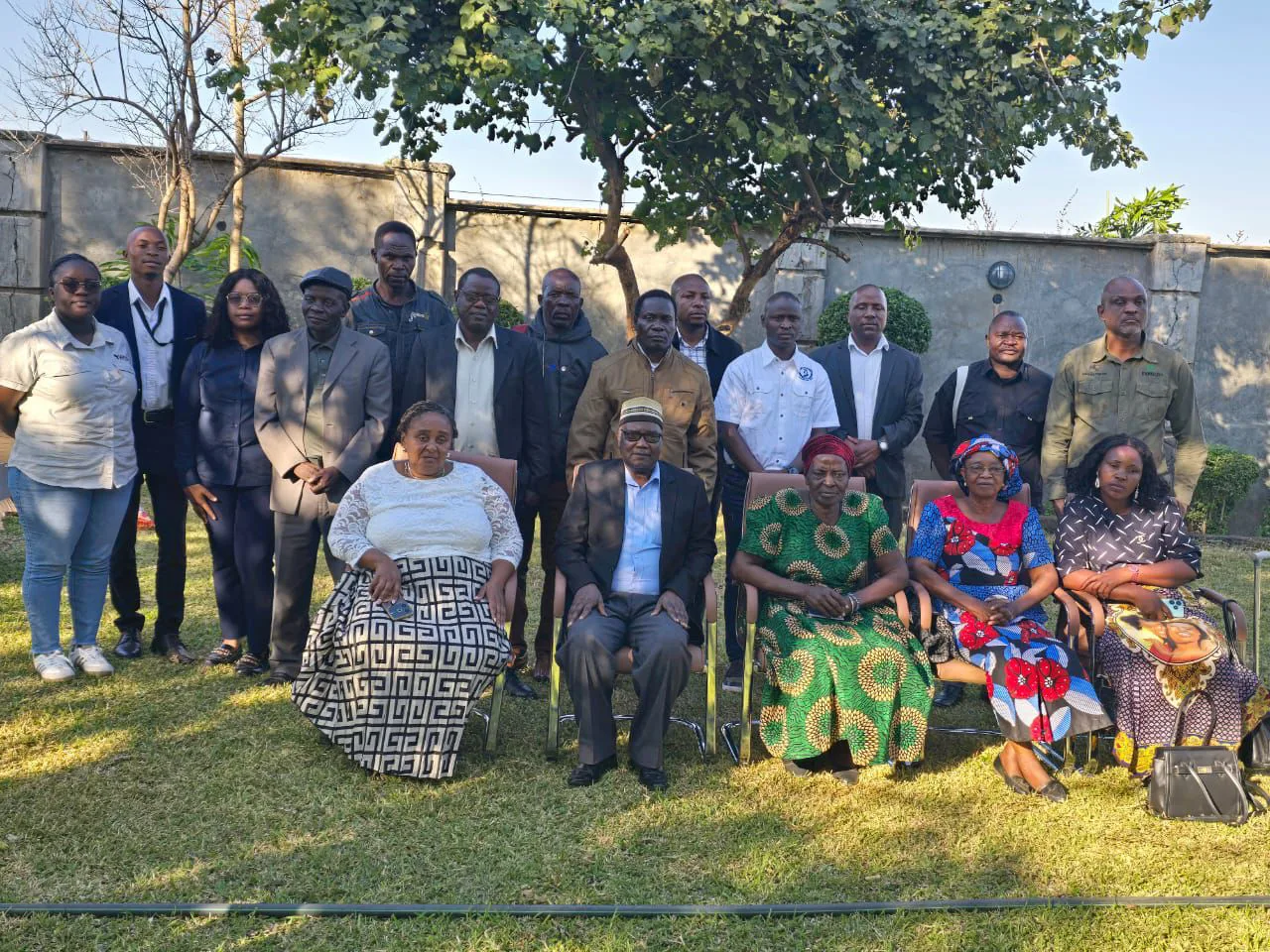By Maina Malaya & Ruth Mulenga
A group of chiefs, government officials, and conservationists gathered in July, not for a ceremony or celebration, but for conversation. Their mission was simple yet necessary, to protect Zambia’s forests and wildlife by building bridges where once there were gaps.
This was the beginning of the Chiefs and Stakeholders Engagement Programme, an initiative by WCP Zambia through its Wildlife Criminal Justice Programme. The programme seeks to strengthen collaboration between traditional leaders, government agencies, and other key players in the fight against illegal timber and wildlife trade, one conversation at a time.
Deforestation has become one of the most urgent environmental threats of our time. Globally, it stands as the second-largest source of greenhouse gas emissions after fossil fuels. In Zambia, the culprits are clear, charcoal production, unsustainable agricultural practices and unsustainable timber harvesting. When trees are cut faster than they can regrow, forests lose their ability to protect soil, regulate rainfall, and store carbon, and communities lose the foundation of their livelihoods.
A CIFOR–ICRAF study conducted across Zambia’s Eastern, Northern, and Northwestern provinces revealed alarming trends in forest depletion. Merchantable sizes of valuable species such as Baikiaea plurijuga (Zambezi Teak) have drastically declined. Meanwhile, informal logging continues largely, with villagers, often hired by merchants for a small fee, harvesting timber without permits or environmental clearance.
This unregulated activity persists even though over 60% of Zambia’s rural population depends on natural forests as a cornerstone of their livelihoods. According to the Ministry of Lands and Natural Resources (MLNR), more than 80% of roundwood and nearly all fuelwood are harvested without valid licenses. These figures paint a grim picture, but they also reveal where change must begin, on the ground and in the forests where these challenges persist, like the Eastern Province.
The Forests Act No. 4 of 2015 of The Laws of Zambia provides the legal framework for the management of forests in Zambia. Notably, the act and its subsidiary legislation regulate the manner in which timber ought to be harvested and exported to ensure sustainable use of forest resources. The Forests (Export of Timber) Regulations, Statutory Instrument No. 94 of 2015, permits the export of certain timber products such as sawn timber, drilled railway sleepers, poles from planted species, finished timber products, and plantation trees, and also authorises the Director, in consultation with the Minister, to issue permits for exporting other types of timber when such exports are deemed beneficial to the Republic. However, the law strictly prohibits the export of charcoal, unfinished timber products sourced from national forests, and raw peelers or saw logs of any species.
The Zambian government has taken major steps to combat illegal timber logging, including plans to deploy drones for forest surveillance and empower the Forestry Department to intensify law enforcement. However, laws and drones alone cannot solve the problem.
Recognising this, WCP took a different approach, engaging those who have guided the land for centuries, the chiefs. In Zambia’s system of natural resource management, chiefs hold great influence. They are the custodians of customary land and the first to grant consent before a timber license can be issued. Their signatures, therefore, can either open the door to sustainable development or to exploitation.
Stakeholders and law enforcement agencies observed that in some instances, individuals have presented letters indicating authorisation from traditional leaders to conduct timber or charcoal activities, sometimes without prior consultation or without following due procedure by obtaining a permit or licence from the Forestry Department. This unintentional misalignment between traditional structures and government systems has, at times, undermined law enforcement efforts. To mend this disconnect, the Chief Engagement Programme was launched, a forum for chiefs, forestry officers, and justice representatives to share information, align processes, and foster a shared vision for conservation.
The first engagement, held in Petauke brought together 20 participants, including three Chiefs, five Chief Representatives, Government officials and other stakeholders, into an open discussion. During the meeting, the chiefs raised concerns over the Forestry Department’s practice of issuing permits and licenses without prior consultation, particularly regarding the availability of forest resources within their chiefdoms. They emphasised that such decisions, made without their input, undermine local oversight and traditional custodianship of natural resources. The chiefs also highlighted the department’s limited inspection capacity and inconsistencies in the permit issuance process, which they said have opened the door to unregulated and often unsustainable harvesting. Rather than assigning blame, the room echoed with understanding that effective conservation requires shared accountability and transparency.
The next meeting, hosted in Mfuwe, expanded the conversation by inviting the judiciary from the Subordinate courts around the Eastern province. In attendance were two Chiefs and one Chief Representative from Mambwe District. The forestry department was encouraged to collaborate with the prosecutors by informing the courts of the value of the timber in cases being adjudicated. This information helps ensure appropriate sentences are passed to discourage others from committing forestry offences. Their goal was to ensure fairness and consistency in timber-related prosecutions. Judicial representatives urged chiefs to stand firm as custodians of Zambia’s natural heritage and to work alongside law enforcement. They emphasised that when chiefs champion justice, officers feel safer, and communities grow stronger.
The Chiefs and Stakeholders Engagement Program is a movement toward uniting traditional authority, government institutions, civil society and the law in a shared mission to protect Zambia’s forests and wildlife. Through dialogue and respect, traditional leaders are being equipped with knowledge about forestry regulations, license procedures, and their vital role in sustainable resource management. In return, they are sharing cultural insight and moral authority, qualities that no law alone can command.
Eastern Province leaders are proving that conservation is not merely a government duty but a collective inheritance. As one participant put it, “When the guardians of the land and the guardians of the law walk together, the forest breathes again.”


0 Comments